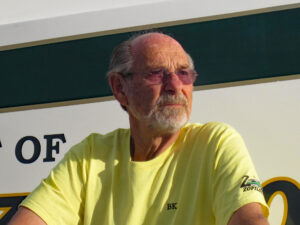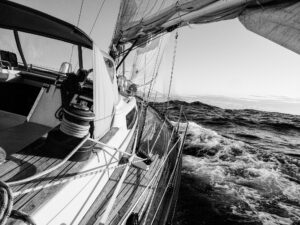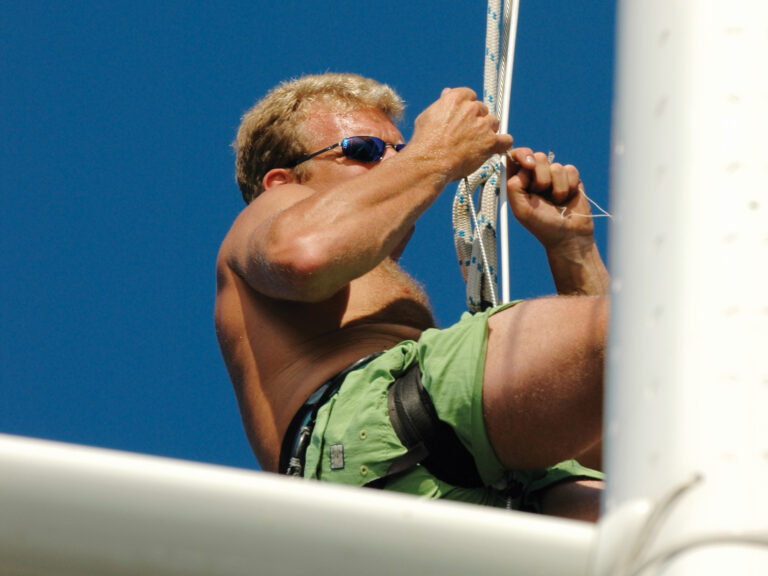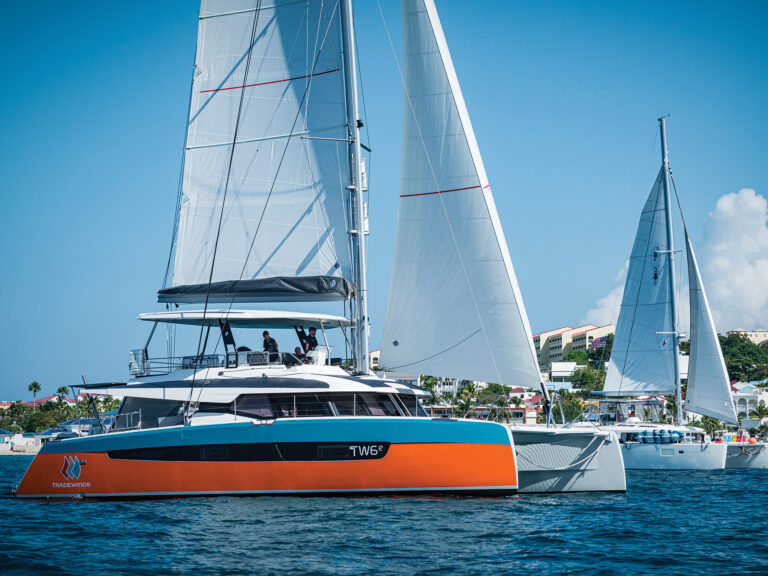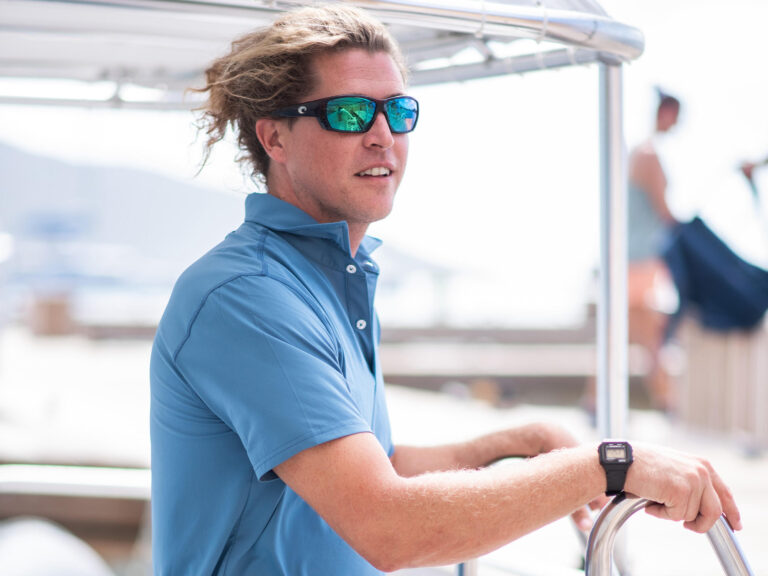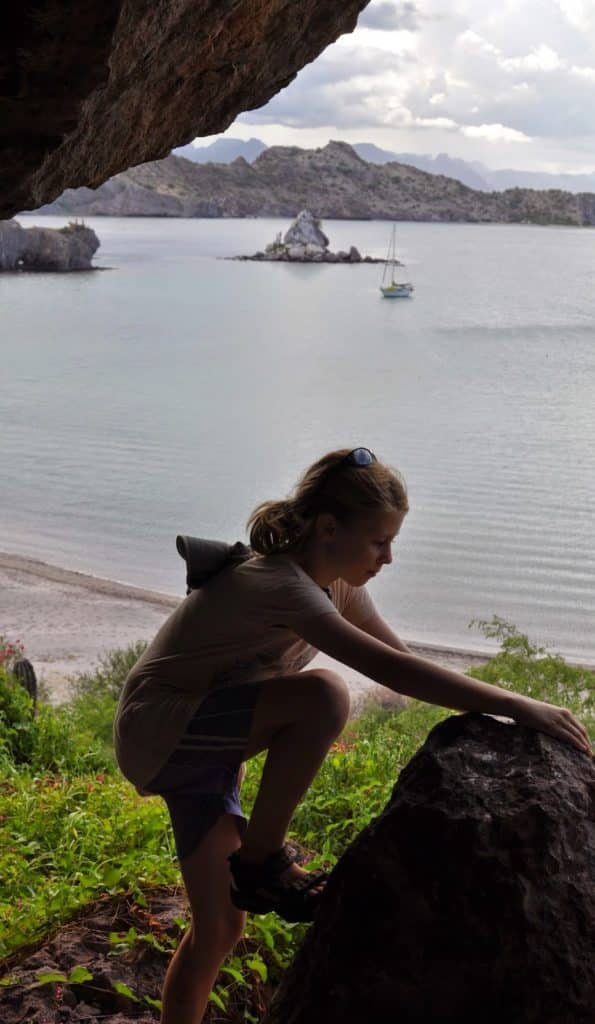
I really enjoy Latitude 38 magazine. It’s a West Coast institution. It’s available free along the Pacific waterfronts of the U.S. At far-flung anchorages around the world, cruisers with West Coast hailing ports still pass on copies to one another. Publisher Richard Spindler has a strong, charismatic editorial voice that is hard to find elsewhere.
When we moved to Washington, D.C. and lived for a decade without a boat, I maintained an annual subscription just to stay in the loop. Since we’ve been cruising, I mostly keep up via their online site, ‘Lectronic Latitude. And that’s where I recently read a story that rubbed me the wrong way.
The story in question is simple. Magazine publisher walks along the waterfront, spots a woman at the top of a mast, and his “interest is sparked.” He interviews her.
“How long were you up there for?”
“Had you been up a mast before?”
“Did you drop anything?”
“Do you have a fear of heights?”
“We’re impressed, do you know other women who have gone up the mast?”
Then Spindler offers a bit of sexual innuendo before soliciting responses from any women in his readership who might have gone up a mast in their lives. He says he wants to recognize them.
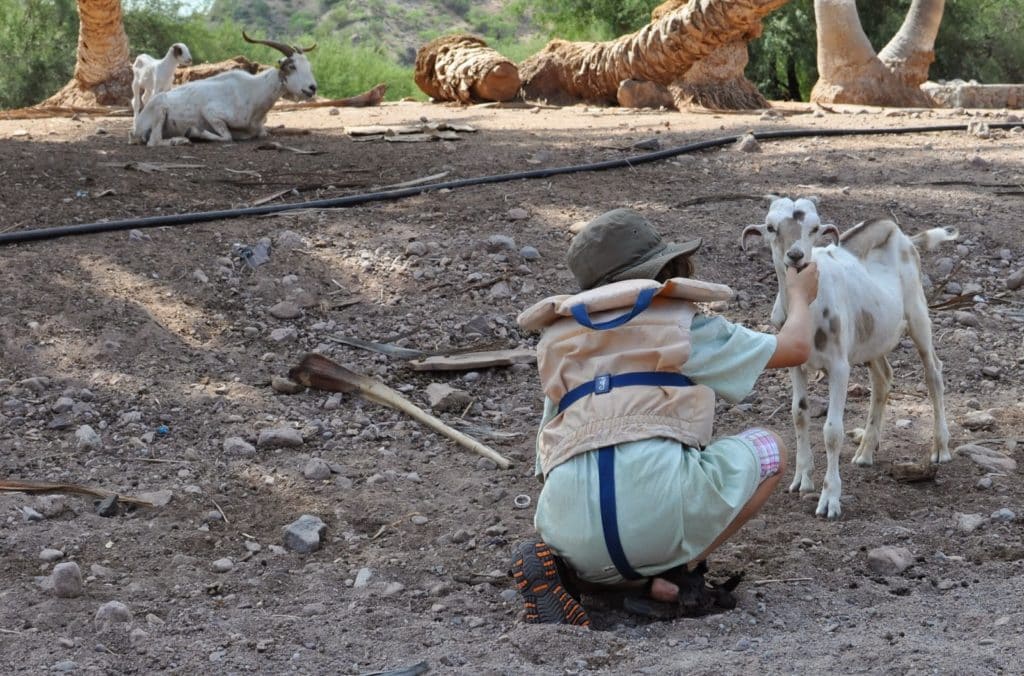
C’mon! Spindler’s been on the water for longer than I may ever be. He personally knows many sailing women who go up the mast. He knows this is not a news story. Yet he writes this piece like it is, like he witnessed a remarkable event. The interview reads like a parody—seriously, it’s hilarious when read from that perspective. And I hoped that it was written from that perspective, but it wasn’t.
So what’s the harm?
At the start of the his story, Spindler writes, “While it may not fit the progressive narrative about equality of the sexes, it appears there is something of a natural division of labor on sailboats. In the overwhelming number of cases, men do most of the sailing and the mechanical chores, while women do the cooking and cleaning. Blue jobs and pink jobs.”
I agree with these sentences to the extent that in an overwhelming number of cases, aboard a boat it’s usually a man in the engine room and a woman in the galley. But unlike Spindler, I don’t think it’s this observation that’s contrary to the “progressive narrative.” I think posting a story on his magazine’s newsfeed, in which the entire point and focus is to announce that a woman allowed herself to be hauled to the top of her own mast to fix a broken windex, is both patronizing and contrary to the progressive narrative.
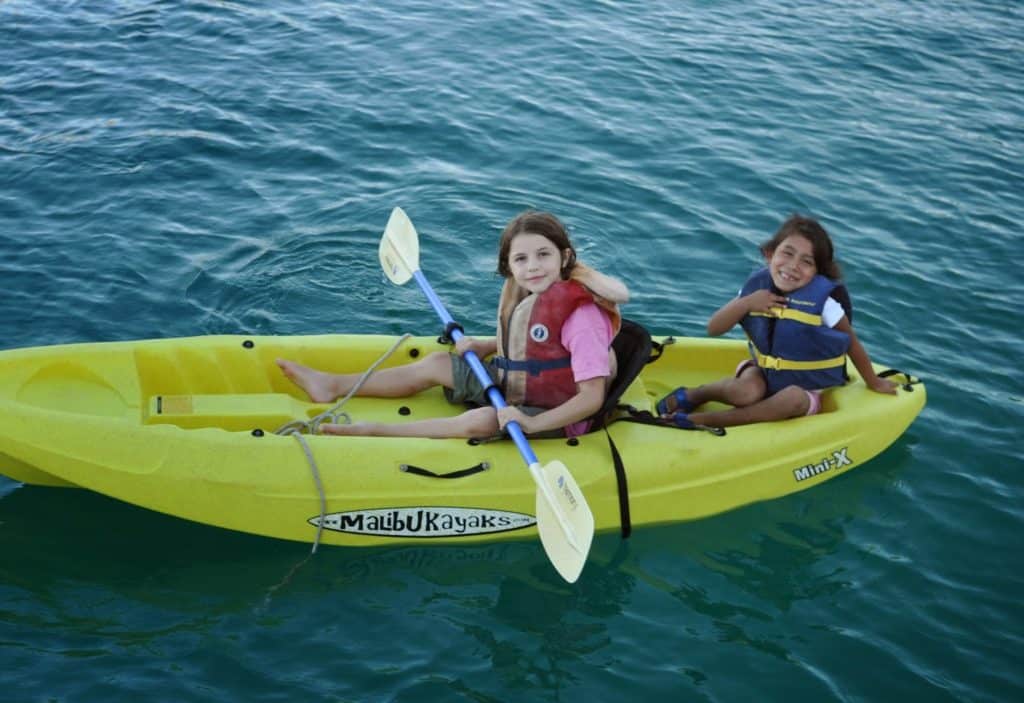
I’m raising two girls into women. It’s a big responsibility. In part it means forging a way for them in the world until they can do so for themselves. In the almost five years we’ve owned Del Viento, Eleanor has been up the mast a few times (Windy more). She’s light and easy to haul up (probably the reason a lot of female crew are pulled up the stick). She’s also my partner in crime when it’s time to change the engine oil or transmission fluid. I’m proud of her, but would never be comfortable seeing her recognized someday in a magazine or online newsfeed just for being a woman who ascends a mast or changes the engine oil. Because that kind of an article would serve only to keep the progressive narrative, from progressing.
In our twenties, we traded our boat for a house and our freedom for careers. In our thirties, we lived the American dream. In our forties, we woke and traded our house for a boat and our careers for freedom. And here we are. Click here to read more from the Log of Del Viento.

